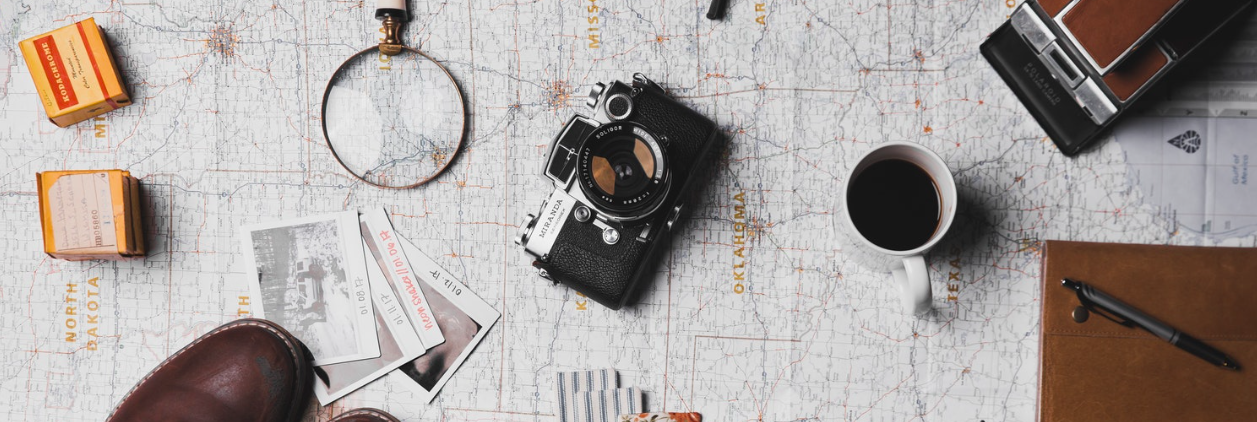When travelling out of the country either for holiday or business, you must be adequately prepared to ensure a positive travel experience. Preparation for the trip shouldn’t be hasty. You’ll need to create a comprehensive plan that should commence some months before your scheduled departure date.
A detailed plan will help you put the right things in place and at the right time, and equip you with the tools you need to ensure a stress-free journey. In this piece we’ll look at a checklist of tasks to complete before the trip can be safely embarked upon.

Things to do a few months before travel
Confirm your travel plans
When the travel date is about a month or two away, it is important to check with the airline once again to confirm that the date and time on the ticket remains accurate. This is perhaps the first task to accomplish, as all other tasks and planning will revolve around your actual travel date.
Other minor information that should be confirmed during this period includes your seat allocation and baggage allowance. If changes have been made by the airline, then your target and schedule should be readjusted to meet such changes. If you are travelling with Air New Zealand you can do that here.
Ensure your passport is valid and don’t forget to secure your genuine photo identification
With a month or so left to your travel date, the last thing you want to happen to you is to be in possession of an invalid or expired passport. It would be a monumental waste of time, effort and money if on your scheduled travel date you’re turned back at the airport simply because your passport is not in order.
It is, therefore, important to ensure that all passport issues are nipped in the bud a few months before your trip date. You may also need valid photo identification when passing through airport checking. It is therefore wise to have it in place weeks before the travel date.
If necessary and you are a NZ citizen can get in touch with the New Zealand Passport office here: NZ Passport Office
Get travel insurance
You should never travel across your country’s border without a valid travel insurance plan. It is necessary as it will take care of risks you may encounter at any stage in your travel. A good travel insurance policy will protect you against any unexpected hitches on your trip and ensures that, whatever happens, you are adequately protected and can still enjoy a smooth and stress-free travel with peace of mind. You can check out sites like Cigna, State Travel Insurance or AMI
Notify appropriate authorities and security agencies
This is very important to ensure that you can easily be located and get protection from your home country in the event of a sudden conflict that could endanger your safety occurring in your country of destination. It also allows the authority to inform your family about your whereabouts if they become worried.
Book an accommodation
This is vital and also quite easy to do with several hospitality services having online platforms that allow for easy booking. Make sure to take care of this before even stepping foot at the airport, as the hotel or lodge you plan to book for your first night or few days may no longer have any available spaces by the time you arrive at its location. Trivago and Expedia are good options.
Health check-ups
This is the usual protocol that is observed especially if there is a health crisis that is more localised in the country you are travelling to. It is important that you seek and heed the advice of medical professionals on the necessary precautions that you must take before embarking on your journey. If there are vaccines available, you should make sure to take them to avoid unwarranted health problems.

Things to do a week before travel
Make lots of copies of important travel documents
With your passport and other documentation in place, the next thing to do is to make lots of copies to avoid any unseen glitches and ensure your trip goes smoothly. Along with your passport, make copies of important documents like traveller’s check, itinerary, insurance, debit and credit cards. Keep a batch of the copies in a separate place from the originals, and store another batch away at home for safekeeping.
Exchange some money
While the increase in online banking transaction may render this suggestion a bit unnecessary, you must remember that you will probably need to purchase some items or pay for some services at locations where internet banking transaction is unavailable. So having some cash in the host county’s currency is never really a bad idea.
Be familiar with the laws of the host country
When visiting another country for any reason whatsoever, it is very important that you familiarize yourself with the laws in that country. Remember that the laws guiding human behaviour and action in two different countries are never the same; likewise the consequences of the action will most likely differ.
Ensure you are well read on the things that are illegal in the host country, so as to avoid any embarrassing experience that will derail the purpose of your trip.
Locate your home country’s embassy
This is just a protocol that must be observed for safety reasons. While you may not have to visit your home country’s embassy unless you suddenly require documentation assistance in the host country, you should still know where it is located to be on a safer side.
Pack your luggage
With the information of your luggage limit already at your disposal, you can efficiently pack the clothing and items that will be needed during your trip. You must endeavour to keep unnecessary clothing and tools away from your luggage and only pack the basic necessities that you’ll need when you arrive in the host country.
You should ensure that you do not pack items and goods that are prohibited either by the airline or the host country’s custom service.

Things to do on the day of departure
After confirming your paperwork one last time, and double-checking your luggage’s content list, the next step is to arrive at the airport early (ideally at least 3 hours before boarding).
If all these detailed steps are properly followed, then you are certain to enjoy not just the departing flight, but also the entire trip.








Join the Discussion
Type out your comment here:
You must be logged in to post a comment.